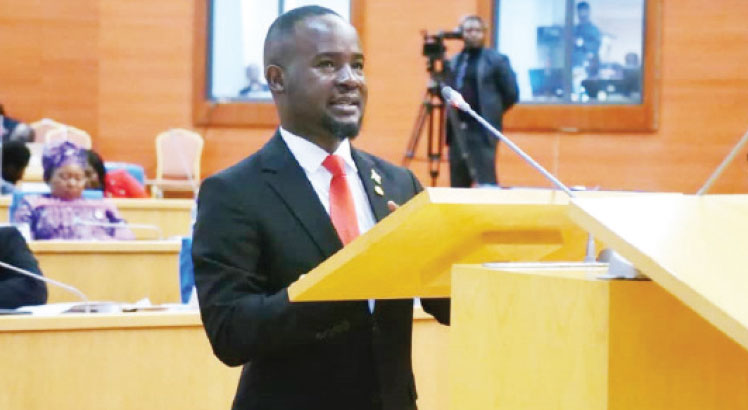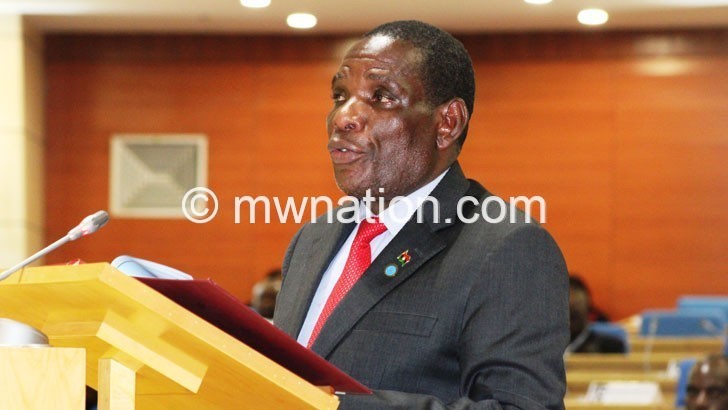Mixed fortunes for businesses in 2023
The year 2023 has seen the profitability of businesses being eroded, with some forced to close shop as operational costs continued to rise amid several shocks.
Businesses were still reeling from the negative impacts of Covid-19-induced economic slowdown, disruption in the global economy following the Russia-Ukraine war and cyclone Ana and Idai.

However, before they could fully recover, Cyclone Freddy devastation had a toll on them in mid- March this year, further magnifying the suffering of businesses.
As if that was not enough, came the scarcity of foreign exchange, rising inflation and cost of borrowing.
The shocks have worsened the macroeconomic imbalance as evidenced by the scarcity of foreign exchange, which led to subsequent weakening of the kwacha by 57.1 percent, high levels of inflation and the high cost of loanable funds.
Speaking in an interview, Chamber for Small and Medium Enterprises Association executive secretary James Chiutsi observed that devaluation has eroded the working capital for most micro, small and medium enterprises (MSMEs).
He said: “Devaluation has created commodity and service price increases, pushing consumers into only buying essentials, thereby taking out non-essential selling MSMEs out of businesses.
“Businesses such as those in the property market, construction and cross-border trade have collapsed, putting the country into slow development.”
Chiutsi said, at the same time, bank interest rates have gone up following the rising of the policy rate from 16 percent to 24 percent, which has since pushed up lending rates from 15 to 28 percent.
He said following the policy rate hike, MSMEs who were already holding loans with banks have had their capital loans tripled in interests, making businesses survival unbearable.
Prior to the 44 percent kwacha devaluation in November 2023, which left the kwacha trading at K1 700 against the dollar, the local unit was highly misaligned with the official rate standing at K1 180 while on the parallel market, a dollar was fetching as high as K1 900. This represented a spread of 61 percent.
On the other hand, inflation, the rate of the general rise in the prices of goods and services over a given period of time, has been on the rise in recent months, hitting 10-year 33.1 percent in November.
This has a negative impact on the cost of production and purchasing power for consumers.
As a way of curbing the rising inflation, the Reserve Bank of Malawi (RBM) raised the policy rate from 18 percent to 24 percent.
Meanwhile, the World Bank data shows that Cyclone Freddy caused production losses estimated at $36.4 million (about K61 billlion), which translates to a real gross domestic product (GDP) loss of 0.5 percent for 2023.
Further analysis also show that without significant investments in climate adaptation, the impacts of climate change will lead to GDP loss of three to nine percent in Malawi by the end of this decade.
The agricultural sector, the main driver of the economy, was hugely affected by the cyclone, sweeping away an estimated 204 800 hectares of crops.
Speaking separately, Malawi Confederation of Chambers of Commerce and Industry (MCCCI) president Lekani Katandula said 2023 was a mixed year with challenging forex and fuel supplies, which drove inflation high alongside the adverse agricultural impact from Cyclone Freddy.
He said: “On the other hand, we enjoyed a much better electricity supply compared to 2022.
“Businesses that have accumulated kwachas, perhaps from failure to make forex denominated payments benefited from improved money market investment returns but those that had significant borrowings suffered from the expensive interest rates.”
Looking forward, the chamber sees a lot of opportunities and threats that are likely to influence economic performance in 2024.
Said MCCCI in its 2023 Business Environment Assessment: “There is a window for the economy to perform better depending on the policy pathway to be undertaken post-devaluation.
“The economic performance in 2024 will depend on the availability of foreign exchange amongst many other factors. If the country does not embark on new foreign exchange generating endeavours.”






One Comment